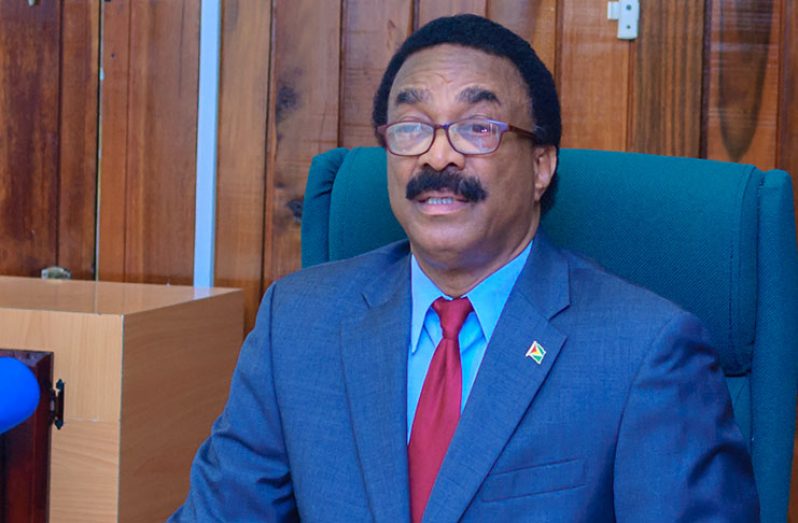– attorney general
THERE has been no wilful failure and/or refusal on the part of Attorney General (AG) and Minister of Legal Affairs, Basil Williams or his government to bring into operation the Judicial Review Act 2010 as alleged by former Minister of Legal Affairs, Anil Nandlall.
Judicial Review refers to that area of the law which allows a person aggrieved by any public officer, including ministers of government, public authorities or statutory tribunal, to challenge the identified act or omission on the ground that same is unlawful. The process therefore guards against the abuse of power.
The Attorney General’s Chambers Saturday, in response to a Kaieteur News article dated May 9, 2018 and headlined: “AG pussyfoots with operational Judicial Review Act— creates barrier to certain reliefs of Court” issued its Affidavit of Defence dated January 2018 which contends that the legislature has provided for the delayed commencement of the Act.
Last year, former AG Anil Nandlall under the People’s Progressive Party (PPP) had moved to the High Court seeking an Order Nisi of Mandamus compelling the current AG, Basil Williams, to bring into operation the Judicial Review Act of 2010.
When the Act was passed, Nandlall was not serving as Minister of Legal Affairs and AG, but party colleague, Charles Ramson was. In his application, Nandlall argued that the AG has failed, refused or neglected to bring the Act into operation despite it being part of his responsibilities. According to the former AG, when the 2010 legislation was passed in the National Assembly, it could not become operational as the old High Court rules made no provision for Judicial Review.
Williams, by way of the Affidavit, contends that the commencement of the Act must be done in accordance with his administration’s legislative agenda. The Respondent (AG) pointed to Article 106 (2) of the Constitution of Guyana which states that Cabinet has to “aid and advise the President in the general direction and control of the Government and is collectively responsible therefor to Parliament”.
“This legislative agenda is presented by His Excellency the President at the opening of every session of Parliament,” the Affidavit stated, stressing that it is the executive arm of government of which the Minister of Legal Affairs is a member determines the appropriate commencement date of the Act.
DATE SET BY MINISTER
Meanwhile, Section one of the Act says that the legislation shall become operational “on a date appointed by order of the Minister”.
However, the allegations put by Nandlall in his Fixed Date Application dated November 28, 2017 were denied. The State has accepted that there has been a delay since 2010 in bringing the legislation into operation. From 2010 to now, there were at least two different attorney generals, inclusive of Nandlall.
“The respondent contends that the assertion that the enforcement of the Act was dependent on the existence of the Civil Procedure Rules is misconceived and erroneous.”
The State argued that the natural and ordinary meaning of “rules of Court” in section 3(1) of the Judicial Review Act which provides that an application for judicial review shall be made “in accordance with this Act and with rules of court” contemplates rules that are in force and did not expressly or implicitly refer to any rules of Court to be made as alleged by the applicant.
As such, Williams made it clear that the legislature provides for the delayed commencement of the Act.
Additionally, the State contends that the granting of the Orders prayed for by Nandlall would “amount to a grave abrogation of the doctrine of separation of powers for the Judiciary to compel and or direct the Executive to perform the function to determine the date of commencement that the legislature has by law vested to the executive arm of government”.
As a result, the State contends that there exists no lacuna in law or prejudice to members of the public who seek judicial review as alleged by Nandlall. “Since it is settled law in Guyana that before the passage of the Judicial Review Act the High Court of Guyana has powers of judicial review and to make prerogative orders within the law. The applicant’s allegation that there currently exists a lacuna in the law is erroneous.”
The Judicial Review Act No. 23 of 2010 provides for an application to be made to the High Court for relief by way of judicial review.
The matter is being heard before Chief Justice (ag) Roxane George-Wiltshire.



.jpg)








